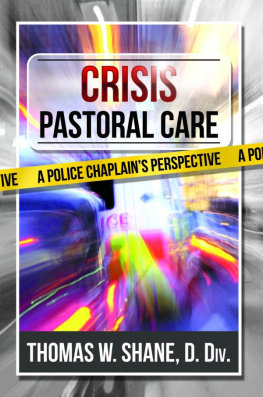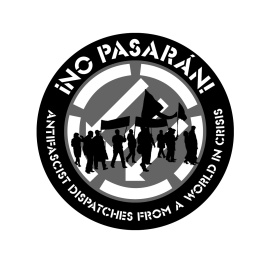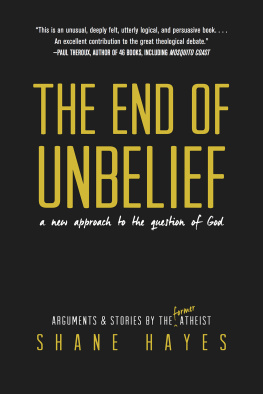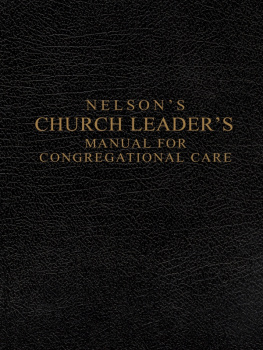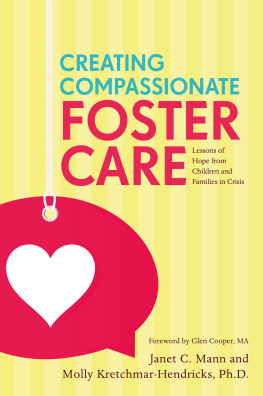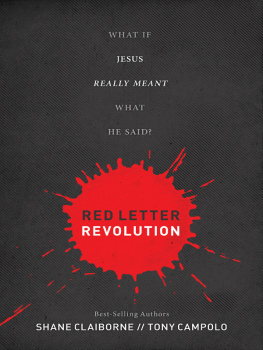
CRISIS
PASTORAL CARE
CRISIS
PASTORALCARE
A Police Chaplains Perspective
Thomas W. Shane, D. Div.
ONE WORLD PRESS
Chino Valley, Arizona
2011, Thomas W. Shane
All rights reserved. No part of this book may be reproduced in any manner without written permission from the publisher, except in the case of quotes used in critical
articles and reviews.
Cover Design: Accurance, Bloomington, Illinois
Interior Design and Layout: Kadak Graphics, Prescott, Arizona. www.kadakgraphics.com
ISBN: (13 digit) 978-0-9838455-6-0
This eBook was created in the USA by:
ONE WORLD PRESS
890 Staley Lane
Chino Valley, AZ 86323
800-250-8178 printmybook@oneworldpress.com www.oneworldpress.com
To my wife Linda and our children
Kimberly, Mark, Michael, and Sara
CONTENTS
The Chaplains Notebook, Part I: General Principles for
Working with Cops
The Chaplains Notebook, Part II: Values for
Consideration
The Chaplains Notebook, Part III: Death
Notification, Principles and Procedures
The Chaplains Notebook, Part IV: Working in
Disasters
INTRODUCTION
F or three decades a large part of my ministry has been as a police chaplain. And although the work I got paid for was as a hospital chaplain and as a certified supervisor with the Association for Clinical Pastoral Education, my time as a police chaplain was a large part of my life and just as dear to my heart. Most parish clergy will likely experience many aspects of the crisis work I describe in this book, and I hope to tell the story in a way that enlightens this often hidden and inevitably sad world of work with cops.
Other authors and other resources will do the important job of outlining the theory and practice of crisis intervention. My intent is to tell stories, so that those who are called to do intervention will have a sense of what the reality is like. Theological education can get lost in a world of ideas. When this happens, theology is at risk of being dehumanized rather than grounded in the human condition. Sin is not a concept. It is the experience of Jack who thought his wife was having an affair, and so took his revolver from the cars glove box, walked into the living room where she was watching a movie with their children, and shot her to death.
I am writing to describe the world of police chaplaincy. Many times when law enforcement personnel are needed, chaplains should have a presence as well. Local clergy are likewise involved, if not initially, then with the long term care of those who are affect- ed by tragedy. In this book I describe a number of circumstances where those in law enforcement encounter people in great distress (legally, socially, psychologically, interpersonally, medically and spiritually). I then offer representative case stories where clergy are involved in providing pastoral care.
All the incidents are true accounts of my work as a police chaplain, and in each case particular faith matters are dramatically revealed. Understandably some details have been altered to protect the privacy of those involved, yet each story is grounded in an authentic event.
CLINICAL PASTORAL CARE
Clinical pastoral care is significantly different from academic pastoral care because it is grounded in the nitty-gritty of the human experience. This book presupposes that this pastoral care includes three parts: a personal arena, a skill arena, and a conceptual arena; and that all three always unfold at once and must be managed.
Each chaplain needs to be constantly aware of what is happening to him or her personally in the pastoral experience. This includes everything that is going on in the chaplains life which he or she brings to the moment and which may have a bearing on the work if it is not adequately managed. Such pre-existing experiences might include health concerns, marriage issues, or even joyous personal matters like the birth of a child. Any of these events might impact ones ability to be present with someone. Besides the state of mind a chaplain brings to the pastoral event from his or her personal life, the event itself often calls forth issues which impact how a chaplain gives care. Seeing a significantly injured child who is similar in age to one a chaplain knows and loves may impede effective care.
The skill arena has to do with the chaplains need to decide what intervention is appropriate in a given event. There are many pastoral-intervention possibilities, and the chaplain must make an assessment to discern what will be the most effective way to provide care.
The theoretical arena covers a chaplains beliefsthe many ways he or she might conceptualize or understand what is going on. Such beliefs are drawn from theology, psychology, ethics, family systems, and grief work principles.
By its very nature, ministry as a profession is more general than it is specialized, and as a rule it is centered in parish life, as it should be. Some clergy extend their interests to unique settings such as hospitals, prisons, universities, or the military. Many of us in specialized settings believe it is imperative for the church to go into the world to share the Good News and not just invite everyone to come to church. Some are in crisistoo wounded, too filled with shame, or confused about how to access the churchso we go to them.
SOMEONE ELSES WORLD
Only when a chaplain knows who he or she is, both personally and professionally, can they move with ease and integrity among other professionals with different roles. I am a clergy, not a cop; a pastor, not a therapist, and a preacher, not a physician. The reality is that clergy in specialized settings are working in someone elses world and have to play by their rules. A lot of things occur which may seem strange to us or even hostile to our beliefs and training.
Our task is to learn to suspend judgment so that we have the opportunity of creating a pastoral alliance from which we can appropriately pick and choose the times to care and the times to con- front. One cannot overlay a church world and its protocol onto a homicide scene and expect the language, procedures, and style to be the same.
The vignettes which follow reflect my belief in the power of story and demonstrate my own grappling with the difficulties in entering someone elses world. Over the years I have been part of a great many painful human experiences. I have witnessed the terrible results of broken promises, heard the piercing cries of anguish, known the bitter taste of despair. What I hope to share is the reality of the tears, not the theory of grief.
Much of what I say about emergency ministry grows out of my work as a chaplain to the law enforcement agencies in Harvey County, Kansas. I trust that these stories will deepen your under- standing of what might genuinely serve another if or when fate calls you to stand in the presence of human crisis.
WORKING WITH COPS
Law enforcement is a tight fraternity, and it is very difficult to gain acceptance within a profession that puts one in potential contact with sorrow, where one must make immediate and often life threatening decisions, and where there is danger at every turn. Even though the job is generally routine, it can explode into chaos in the briefest moment. Cops want to know they can depend on their partner. They want to know they can say bullshit and not have some preacher scold them for their language. And if youve ever been around cops youll know they can be, at times, both crude and offensive. One can wish that the language were sweeter and more compassionate. But dont rush to judgment. Listen closely to the underlying message. The rough words are just tough ways to keep the world of sorrow at a distance. One cant come in close contact with such agony and not be impacted by it. The chaplain who listens to the deeper truth and is not put off by the presented language will likely be more successful. And, when a chaplain sees the same atrocity and feels the same repulsion at pieces of brain on the wall or slivers of skull on the floor, then he or she is more likely able to build credibility with the team.
Next page
